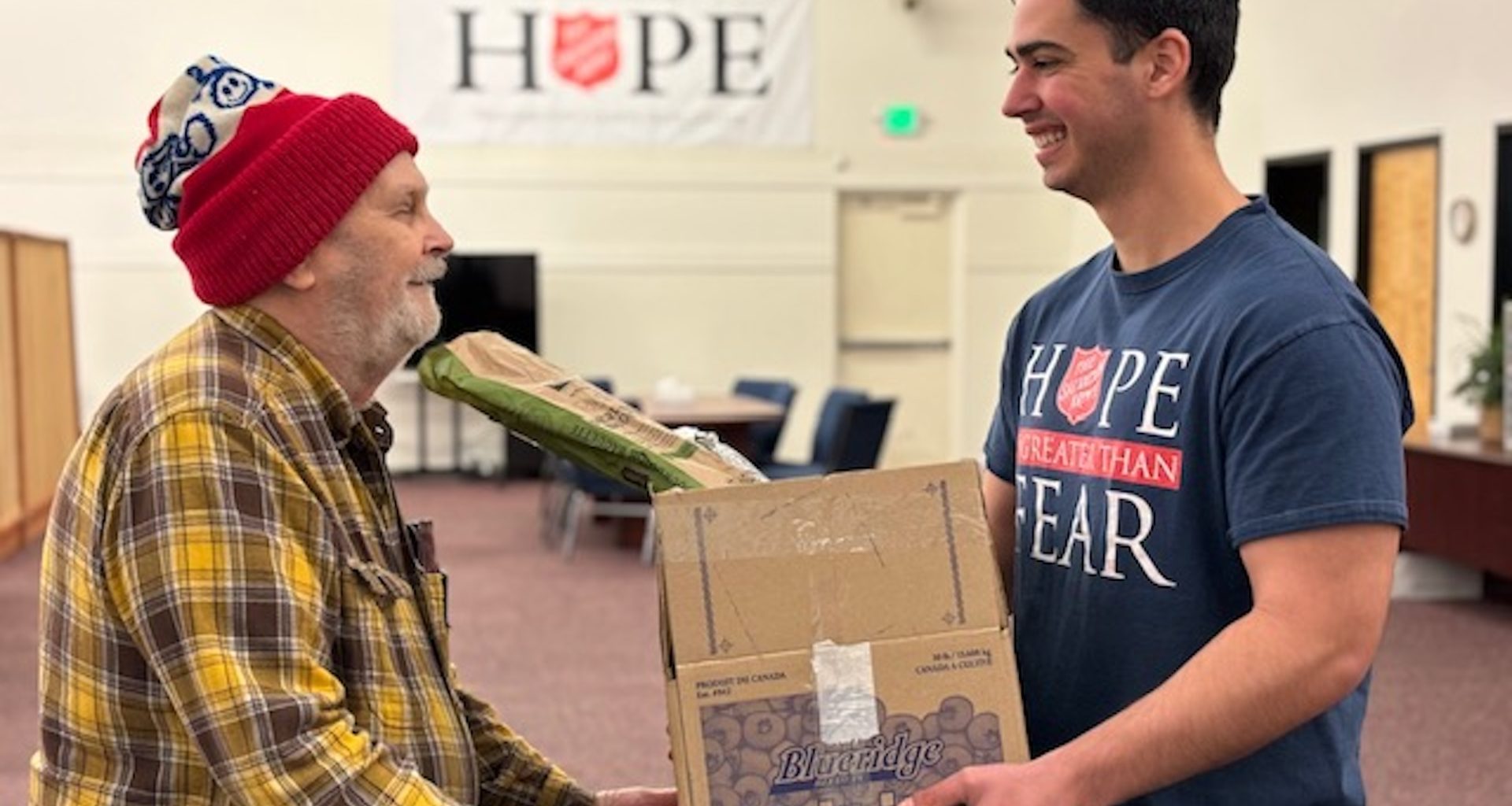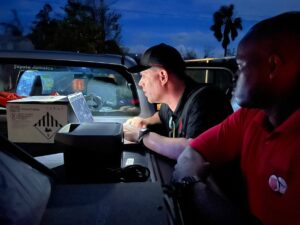Volunteering benefits older adults in myriad ways.
When Byron Miller, 78, first came to The Salvation Army HOPE Center in Hillsboro, Oregon, he was in crisis mode. A clever scammer had convinced him to send three $500 gift cards in the mail, leaving him in a very precarious financial situation.
“They called me on the phone, and they had all the facts and convinced me to send them money,” he said. “Then I couldn’t pay my rent that month.”
Emotional and hurt, Miller was terrified of losing his home, located across the street from the HOPE Center. Adam Harvey, Washington County Programs Director, remembers how panicked Miller was when he first came to the HOPE Center.
“He had been deceived and robbed of money he couldn’t afford to lose and was facing eviction and sleeping on the streets,” Harvey said.
As such, Miller was laser-focused on finding help. Thanks to generous donors, the HOPE Center paid Miller’s rent and later, even helped fix his car and transport him to medical appointments.
Soon after receiving help, Miller decided to start volunteering in the food pantry to “pay it forward.”
“It makes me feel good to give.”
Byron Miller, Salvation Army volunteer
He’s now a daily fixture at the HOPE Center, arriving before the pantry even opens. In the afternoons, he helps supply boxes for the food pantry, tapes them up after they are packed and carries them out to people’s cars.
“It makes me feel good to give,” he said.
Research has long shown that volunteering brings a cascade of positive effects. It gives people a sense of purpose and is even linked with better brain function. Recent research, presented at the Alzheimer’s Association International Conference in Amsterdam in 2023, shows volunteering is linked with better scores on cognitive function tests regardless of race, age, sex, education or income.
The study also showed the more a person volunteered, the better their executive function scores. Volunteering can also help combat depression and loneliness, helping to stave off mental health issues and even decrease one’s risk of dementia, according to a study done by the National Institute of Health.
Volunteering each day has given Miller a sense of purpose and connection he lacked before.
Following a challenging childhood, Miller experienced two divorces. Living alone, he said he spent most of his time watching television or playing games on his computer. Miller said his time at The Salvation Army is helping him let go of some of the long-held hurt he carries and find gratitude.
“I’ve had a lot of different bad experiences in my life that I can forgive more after being here,” he said. “I’m happy where I’m at. I can go on with the rest of my life. God has given me the grace to continue. He gave his only son for us, and I thank him for that.”
Harvey and other staff members have watched Miller change during the last few months.
“Over time we began to notice a softening of his countenance,” Harvey said. “We began to see Byron engage with the clients of the HOPE Center with genuine care, we heard him laugh and engage more. He was truly opening up and experiencing life that his life of isolation had not provided.

“This serving opportunity had brought him back to friendships, back to relational connection, back to society. I believe God has used these new connections in his life to bring healing, purpose and warmth where, before, there was only loneliness.”
Miller is far from the only volunteer at The Salvation Army benefiting by giving back, according to Stacy Dertien, the Territorial Director of the Emergency/Disaster Services Volunteers and Training program for The Salvation Army’s Western Territory. It’s something she sees and hears about often in her role.
“Volunteerism is a feel-good activity that provides both a sense of purpose and sense of community, which are often key for the overall well-being of our senior community,” she said. “It’s not only a way to give back, but also a way to socialize with like-minded people and work toward a common good.”
Volunteering doesn’t just help seniors like Miller, but in turn, the volunteers are very important to The Salvation Army’s success, Dertien said.
“Senior volunteers come to The Salvation Army with a wealth of knowledge that can benefit The Salvation Army on many levels,” she said. “A senior’s big picture view of the world and life experience can provide unique wisdom and insights, and many retirees are open to sharing the knowledge, skills and expertise of their former careers which allows us to tap into skill sets that we may not otherwise be able to afford.”
It’s critical to offer skill-based volunteer opportunities to effectively engage seniors, she said.
“Most seniors will tell you that they have the time and are willing to help if there is an opportunity for them to use their skill set to make an impact,” she said.
Do Good:
- You can make an impact for good with whatever time and skills you have. Whatever your interest, there is a you-sized need for goodness in the world. Get the guide on How To Be An Impactful Volunteer and join us in Doing Good today.












